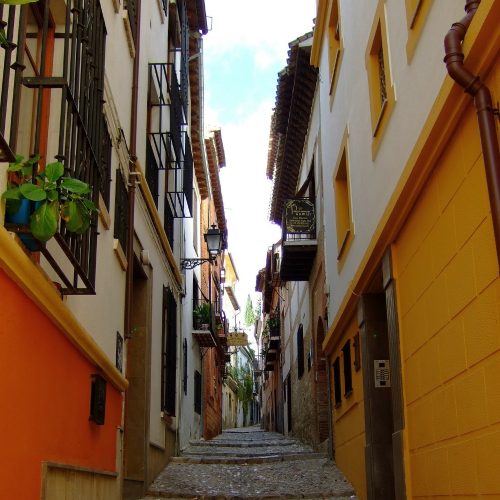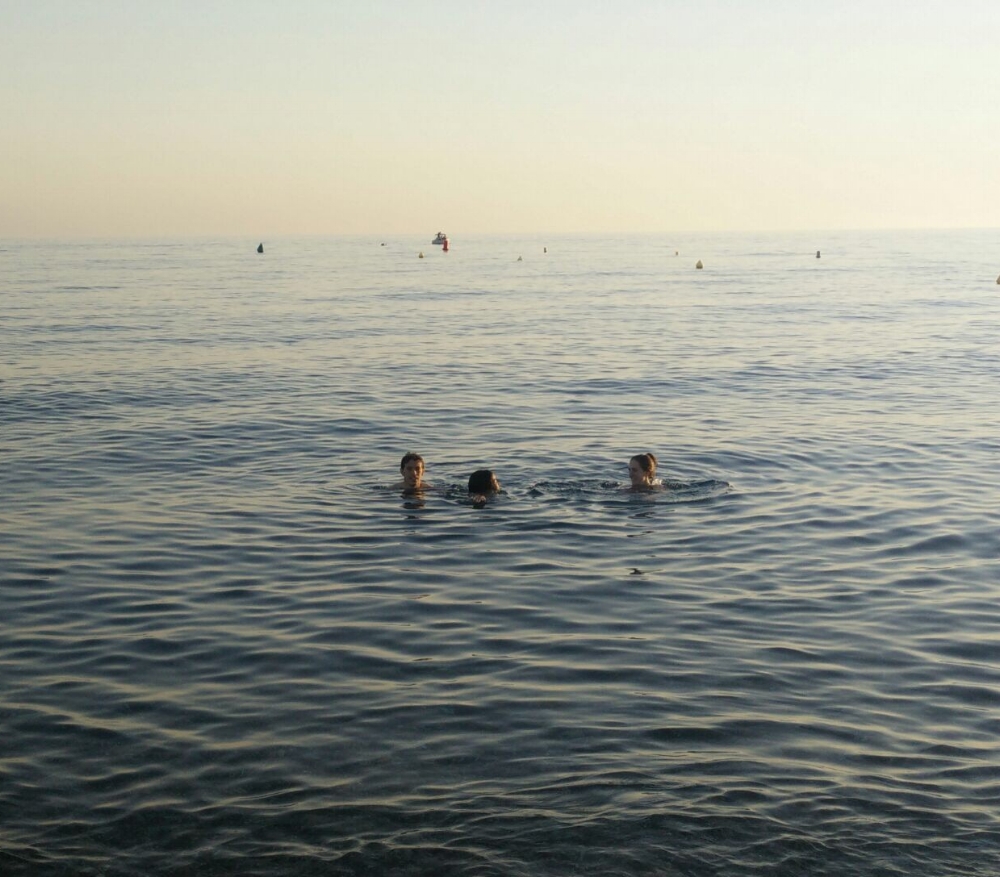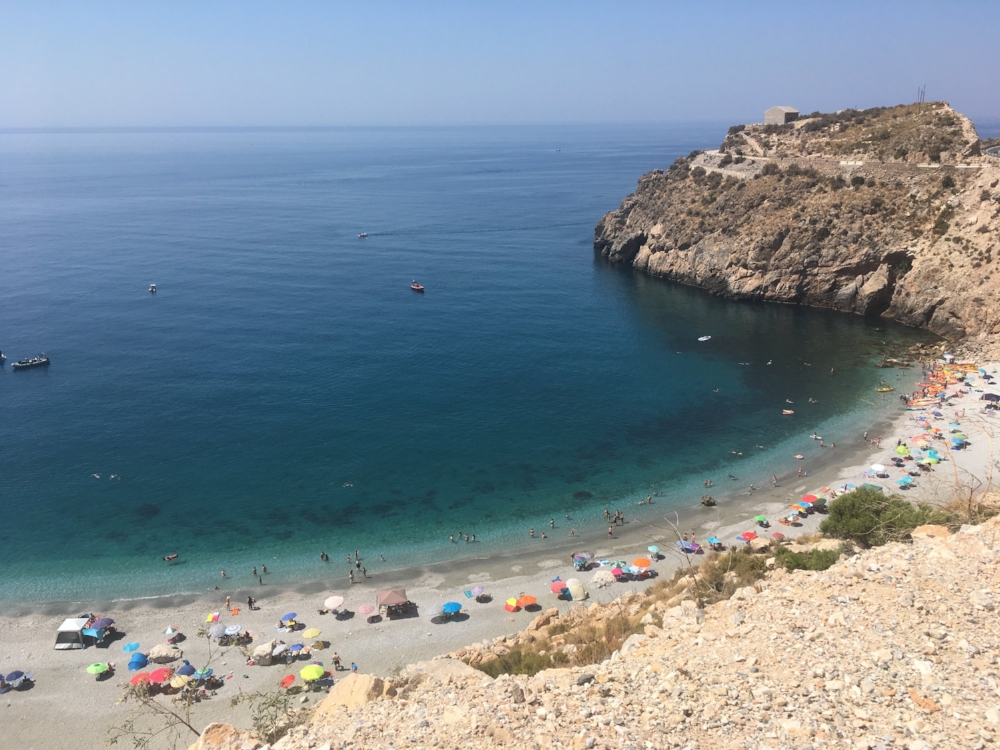
Help: Why is Everything in Spain Closed in August?
Dear Miguel,
You might be used to Spaniards taking a siesta midday—and subsequently closing their businesses in all but the largest cities—but did you know that they like to take a couple weeks to a month off in summer as well? Traditionally the month for holidays is August, and during this time you shouldn’t plan on advancing with big projects in Spain (like applying for school, getting a driver’s license, etc.) and might want to consider that the restaurant you really wanted to try will be on holiday. It ties in to the work-to-live vs. live-to-work ideology and I personally like that things close in August. It is a way for people to connect to their past and to ensure they get the time to rest they deserve.
 Why is August the traditional ‘holiday month?’
Why is August the traditional ‘holiday month?’
You might be thinking that August is a great way to take advantage of all the tourists that will be abroad (as school is out for summer), and there are definitely people who focus on this form of income. However, despite the popular idea that Spanish people are lazy or don’t work very much, I have come to find that they work long hours and get burnt out just like everyone else. This means that taking some holiday time for themselves is just what the doctor ordered (and something I am personally immensely grateful for this year).
Summer is the perfect time to take this, especially in Southern Spain, it is really hot this time of year—the other day at 9:30pm I noticed that the temperature was still around 37ºC or 98.6ºF!! As there is not nearly as much air conditioning in houses and businesses as in the U.S. (although it is increasing), this heat can easily drain you of any extra energy you may have. I am now working way fewer hours than a couple of months ago and still feel the need for an hour to hour-and-a-half long nap after lunch.
In addition, many people have country houses in the mountains or on the coast where they can escape the heat waves for a couple of weeks. These small towns seem like ghost towns the rest of the year, but during the summer they are alive and usually full of people—young and old alike. And, as Spanish students are out of school, parents take the opportunity to spend time with them (and not pay babysitters or summer camps).
What should you expect?
Universities are the first thing to close. In fact, they tend to reduce their hours starting mid-June and going until mid-September (excellent for me as I am currently employed by a university-related business but not so great if you want to sort stuff out). In addition, many businesses that depend on university students will take the summer months off to regroup and reenergize for the new school year in September. Finally, many public administration offices—where funcionarios or public officers work—will be closed or have drastically reduced hours during this time of the year, making it difficult to do things like get permission to work on your house (not like there are contractors available) or pay your tuition fees.
 At the same time, please don’t think that everything actually stops functioning. Don’t get me wrong, there are lots of things that stop working as normal in August—and all throughout the summer months if we are being honest. However, there are many people who take advantage of the situation and take their annual leave in July or September (although almost everyone does take a few weeks of vacations).
At the same time, please don’t think that everything actually stops functioning. Don’t get me wrong, there are lots of things that stop working as normal in August—and all throughout the summer months if we are being honest. However, there are many people who take advantage of the situation and take their annual leave in July or September (although almost everyone does take a few weeks of vacations).
You can expect that places like large supermarkets (Mercadona, Corte Inglés, Lidl, etc.) won’t completely close, although they may reduce their hours to summer hours. In addition, many tourist-dependent business might plan to make the majority of their money at this time of the year and will go on holiday in February when things die down a bit. Overall, even though it might be a bit more difficult to find exactly the help you are looking for, there will always be someone willing to help out…potentially at a slightly increased price.
If you want to enjoy the summer months like a true Spaniard, head to beach or mountain towns—to escape the heat—, eat local food, and try to spend time with your loved ones! It might not be the crazy adventure you were hoping for, but sometimes taking the time to charge your batteries is worth it.
What plans do you have for this August? Follow along on our Instagram to see what we are up to!
Sincerely,
Spain





6 Comments
vilchez_666@hotmail.com
what the hell are people supposed to do if they have time sensitive legal business with the government?? Understandably governments close for large chunks of time throughout the year, but to completely just take a month off is absolutely ridiculous. People pay too much in taxes to not have access to government services.
Sincerely, Spain
Dear Anonymous,
While we understand this can be frustrating, most Spaniards and people who have been in the country for awhile organize themselves in a way that this holiday does not impact them. At the same time, for important time-sensitive, legal business, you will probably have access to the necessary government services. Just keep in mind that it will probably take you longer than expected to get your stuff done.
Best of luck!
Annoyed
This isn’t even about important legal business or engaging with a government department that is annoying. We recently moved into an unfurnished apartment only to find out that during August, all the factories are closed. So in order to have a bed delivered to our new home, we must wait until mid September before that happens. Guess we’ll have to sleep on the floor until people decide to go back to work. I have lived in a few places in EU and never have I been so out of place in Spain. It seems that having a siesta during the day, coupled with weekends off and late morning starts isn’t enough to prevent them from ‘Burning Out’ as you mention.
viktorsize468@gmail.com
Spanish are truly the laziest of laziest people on Earth.
Sincerely, Spain
We understand why it may seem that way compared to the lack of August vacations in some other countries but this tradition is actually relatively common in Europe. At the end of the day, it comes down to culture and tradition and we hope the article helps everyone prepare for what to expect in Spain!